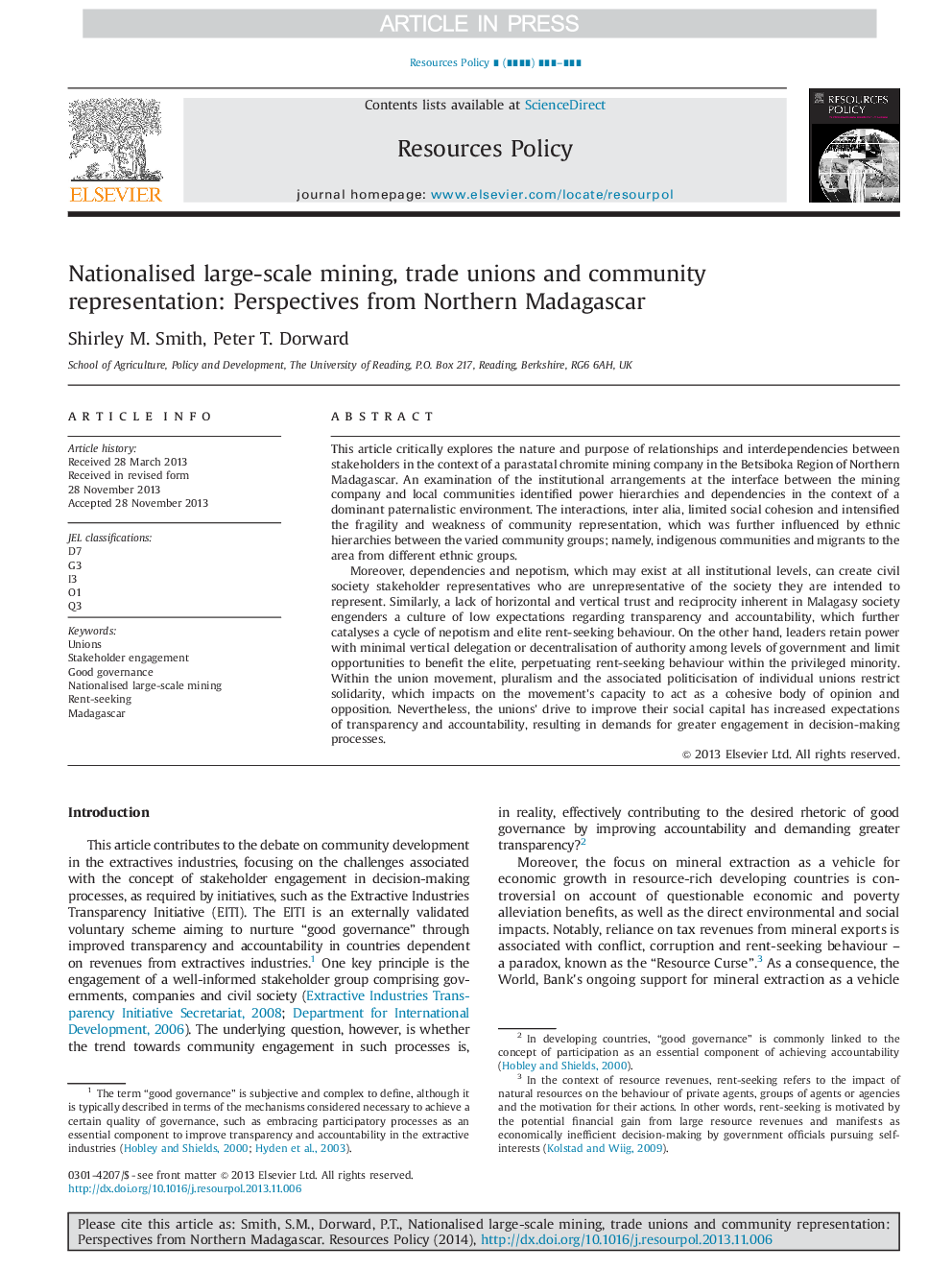| Article ID | Journal | Published Year | Pages | File Type |
|---|---|---|---|---|
| 7387892 | Resources Policy | 2014 | 11 Pages |
Abstract
Moreover, dependencies and nepotism, which may exist at all institutional levels, can create civil society stakeholder representatives who are unrepresentative of the society they are intended to represent. Similarly, a lack of horizontal and vertical trust and reciprocity inherent in Malagasy society engenders a culture of low expectations regarding transparency and accountability, which further catalyses a cycle of nepotism and elite rent-seeking behaviour. On the other hand, leaders retain power with minimal vertical delegation or decentralisation of authority among levels of government and limit opportunities to benefit the elite, perpetuating rent-seeking behaviour within the privileged minority. Within the union movement, pluralism and the associated politicisation of individual unions restrict solidarity, which impacts on the movement's capacity to act as a cohesive body of opinion and opposition. Nevertheless, the unions' drive to improve their social capital has increased expectations of transparency and accountability, resulting in demands for greater engagement in decision-making processes.
Related Topics
Physical Sciences and Engineering
Earth and Planetary Sciences
Economic Geology
Authors
Shirley M. Smith, Peter T. Dorward,
